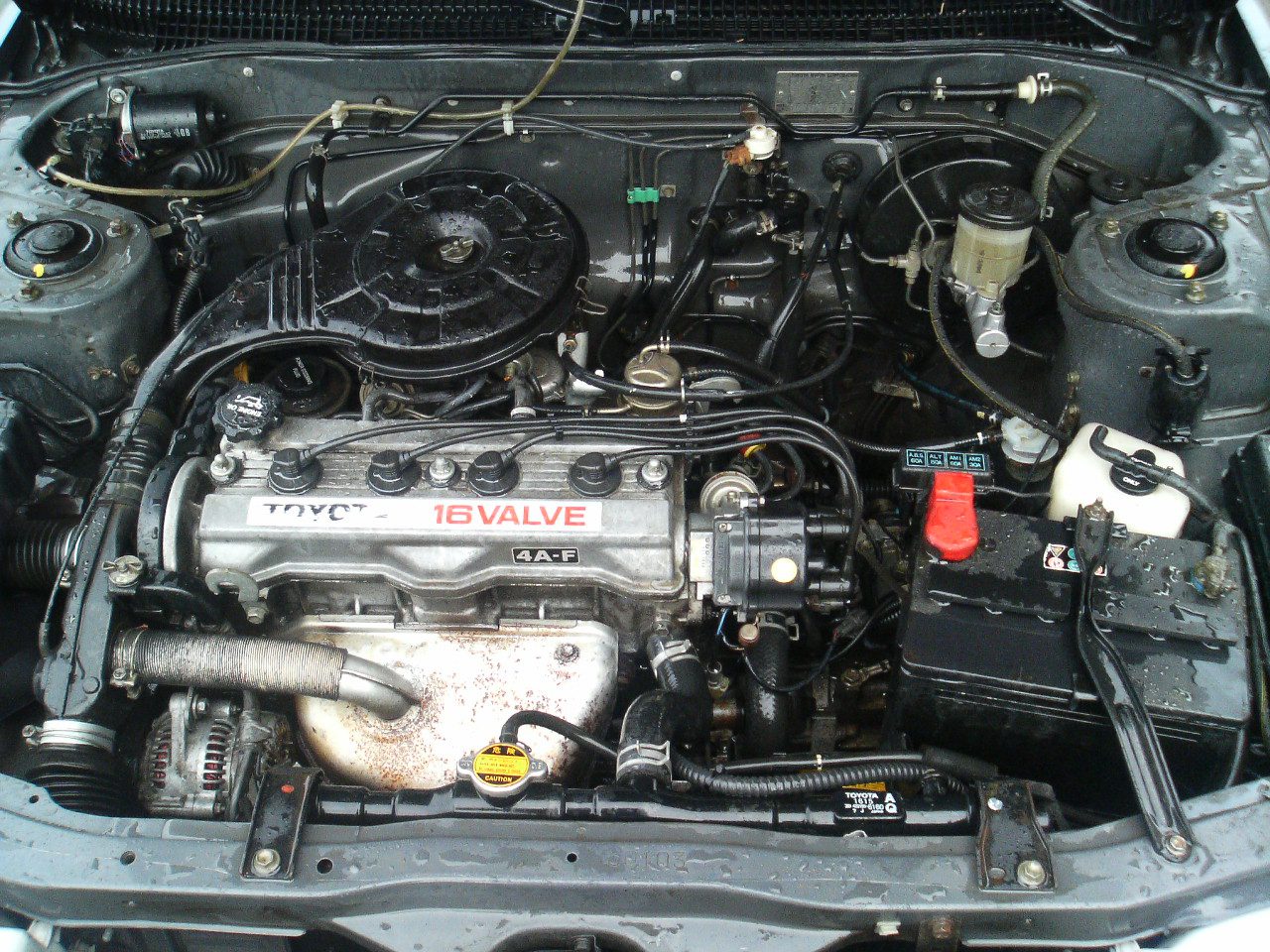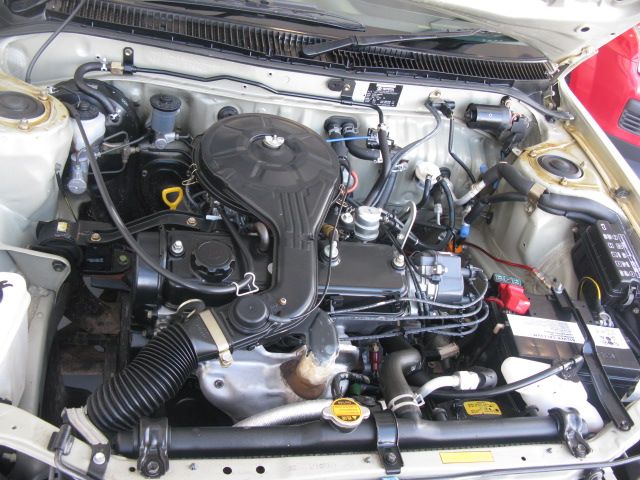Toyota Tazz: Why It’s a Top Choice for Urban Commuters and Small Families
Toyota Tazz: Why It’s a Top Choice for Urban Commuters and Small Families
Blog Article
Explore the most recent Patterns in Engine Modern Technology Through Tazz
In the rapidly advancing landscape of automobile modern technology, Tazz stands at the leading edge, highlighting substantial developments in engine systems that focus on both advancement and sustainability. tazz. From crossbreed engines that enhance fuel performance to the introduction of hydrogen fuel cells, the patterns forming modern powertrains are not only improving efficiency yet also dealing with important ecological difficulties. As the sector proceeds to press limits, it is vital to take into consideration how these growths will certainly influence future transportation solutions and the more comprehensive implications for worldwide energy intake. What lies ahead in this pivotal transformation?
Crossbreed Engine Innovations
Hybrid engine innovations stand for a critical shift in auto innovation, combining the advantages of interior burning engines with electrical propulsion systems. This integration not just enhances gas effectiveness but likewise reduces exhausts, meeting significantly rigid environmental guidelines. By utilizing both power sources, hybrid engines can maximize performance, providing power when needed while preserving fuel throughout less requiring driving problems.
Current developments in crossbreed innovation consist of improvements in battery effectiveness and regenerative stopping systems. These developments permit greater power recovery during slowdown, which can be redirected to help in velocity or power accessory systems. Additionally, suppliers are focusing on light-weight products and compact styles to make the most of the performance of crossbreed powertrains.
The growth of plug-in hybrids has also broadened the marketplace, making it possible for drivers to charge their cars utilizing common electric outlets. This attribute frequently enables considerable all-electric variety, additional reducing reliance on standard gas. tazz. As the auto sector remains to advance, hybrid engine modern technologies are anticipated to play an essential role in bridging the gap between traditional lorries and completely electrical versions, giving a transitional remedy that satisfies diverse customer demands and choices
Developments in Electric Powertrains
The vehicle landscape is quickly developing, with electric powertrains becoming a leading pressure in lasting transport. Advancements in electric vehicle (EV) technology are significantly boosting user, efficiency, and effectiveness experience. Key technologies consist of improvements in battery chemistry, which have actually boosted energy thickness, decreased billing times, and prolonged overall battery life.
Solid-state batteries, for instance, guarantee to revolutionize the marketplace by providing better security and performance compared to typical lithium-ion cells. Improvements in regenerative stopping systems are allowing lorries to recover power throughout deceleration, adding to overall effectiveness.
Along with battery innovation, electrical motor layouts are becoming a lot more innovative. Developments such as incorporated electric motors and advanced thermal administration systems are aiding to optimize power delivery and minimize weight, inevitably enhancing car characteristics.

Collectively, these advances underscore the dedication to change in the direction of cleaner, extra reliable transport remedies, placing electrical powertrains at the forefront of vehicle advancement.
The Increase of Hydrogen Fuel Cells
Increasingly, hydrogen fuel cells are getting traction as a sensible option to traditional internal burning engines and battery electric cars. This technology harnesses the chemical power kept in hydrogen, converting it into power via an electrochemical reaction with oxygen. The primary result of this procedure is water, making hydrogen fuel cells an eco-friendly choice with zero exhausts at the tailpipe.

Car manufacturers are increasingly purchasing hydrogen gas cell modern technology, recognizing its capacity for long-range applications and fast refueling capacities that rival traditional fuels. Furthermore, fields such as heavy-duty transport and public transit are especially appropriate for hydrogen gas cells, where battery electrical remedies might drop short due to weight and range limitations.
As research study and investment remain to broaden, hydrogen gas cells are positioned to play a considerable duty in the future landscape of tidy transport and power remedies.
Enhancements in Internal Burning Engines
Developments in inner burning engine (ICE) innovation are transforming traditional lorries to satisfy modern ecological requirements and performance assumptions. Straight fuel shot, for instance, allows for far better atomization of fuel, leading to more full combustion and boosted power outcome.
Additionally, turbocharging has actually gotten prominence, permitting smaller engines to supply higher efficiency without the weight of larger engines - tazz. This technology not just boosts performance but click here for more info additionally adds to decrease gas intake. Variable valve timing systems are also being refined, enabling engines to adjust to different driving problems for boosted torque and responsiveness
Additionally, making use of light-weight products in engine building is coming to be standard, more boosting fuel effectiveness by reducing overall car weight. Engine control units (ECUs) are increasingly innovative, making it possible for real-time modifications that optimize performance and exhausts.
These enhancements collectively represent an essential change in ICE innovation, lining up with global sustainability objectives while still offering the performance chauffeurs anticipate from their automobiles. As the sector advances, these renovations remain to shape the future of typical automobile engineering.
Future Fads in Engine Effectiveness
Significant advancements in engine effectiveness are expected as manufacturers focus on integrating innovative innovations to fulfill stringent environmental policies and consumer demands. The shift towards electrification, hybrid systems, and alternate gas is improving the vehicle landscape, driving technologies that boost gas economy and reduce emissions.
One of the key trends is the implementation of advanced products and making strategies. Light-weight compounds and high-strength alloys contribute to reduced vehicle weight, thus boosting total effectiveness. Furthermore, the adoption of turbocharging and variable valve timing technologies enables boosted power outcome from smaller engines, further enhancing gas economic climate.

Verdict
Developments in crossbreed engine systems, electrical powertrains, and hydrogen gas cells show a commitment to these details decreasing discharges while boosting efficiency. Improvements in internal combustion engines and a focus on lightweight products add to total engine performance.
From crossbreed engines that optimize fuel efficiency to the development of hydrogen fuel cells, the patterns shaping contemporary powertrains are not just boosting efficiency yet additionally addressing crucial environmental difficulties.Hybrid engine developments represent a critical shift in vehicle innovation, integrating the benefits of internal combustion engines with electric propulsion systems.In addition, turbocharging has actually obtained prestige, permitting smaller sized engines to provide higher performance without the weight of larger engines. In addition, the adoption of turbocharging and variable shutoff timing modern technologies permits for boosted power outcome from smaller engines, further enhancing gas economic climate.
Enhancements in interior combustion engines and an emphasis on lightweight materials add to general engine effectiveness.
Report this page